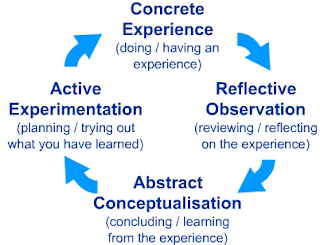
Richard Curtis’ film, ‘Love Actually’, follows many relationships in the five weeks running up to Christmas, in London, England. It tackles issues such as infidelity, parental love, lovers of different ages, lovers who can’t speak the same language, lovers from different social classes, young love, lust, unconditional love, mourning the death of a loved one and how opposites very often attract!
What is it about this film that has led it to such huge success?
Arguably, one of the most impressive aspects of this film is its ability to make you laugh out loud one minute, and then well up with tears the next. As Nev Pierce of the BBC says in his review of the film, “You can almost see Curtis pressing the emotional buttons, but he does it so well you won't care.”
The film uses a slew of the most talented and highly acclaimed British actors, including Emma Thompson, Hugh Grant, Liam Neeson, Colin Firth, Alan Rickman, Keira Knightley and Rowan Atkinson. Having the likes of Hugh Grant and Colin Firth surely helped to publicise the film, and one could suggest that this contributed to the high profits the film made.
Another contributing factor to the success of the film could be that ‘Love Actually’ was the first film that Richard Curtis had directed in addition to having written it. Curtis was able to express the precise purpose of each scene by directing his writing, giving greater depth to the piece than if it had been directed by someone else.
Some critics have frowned upon the fact that there are so many lead characters in this film, and with that, there are numerous plots which are only very loosely intertwined. Its advocates would argue that this is the very beauty of the film - the movie is more about the characters and their personal experiences with love, than it is about a complicated, long evolving plot.
As the many story lines evolve throughout the film, Curtis plays with different social classes, ages and cultures, highlighting the fact that ultimately all human beings are the same – we all have the ability to fall in love, we all have the ability to care for others and show compassion for one another, and we all fear during some point in our life that we will never find true love or that we are in some way inadequate to the one we love. ‘Love Actually’ explores the different types of love and highlights the fact that all love can be challenging, and raises the ultimate question - is love always worth fighting for?
Not everyone enjoyed the film and was impressed by Curtis’ writing. There is a review on Tiscali.com which suggests that certain scenes and characters in 'Love Actually' are unoriginal and repetitive of some of Curtis’ previous works. However, one has to wonder, is that not the reason why Curtis used them?... he was using a recipe that had been tried and tested and was almost guaranteed to produce another hit romantic comedy. This is an extract from the review on Tiscali.com…
“There is a feeling that much of the material is simply regurgitating scenes from previous Working Title/Hugh Grant collaborations: Love is all Around from Four Weddings is overplayed; a zany Rhys Ifans character from Notting Hill pops up here and there, and once again the film ends with Grant making a fool of himself on stage in a school (About A Boy). And it's time to declare a moratorium on scenes where solitary characters break into dance - funny for the first ten times in The Full Monty, but actually a bit embarrassing here.”

Love it or hate it, no one can dispute the fact that “Love Actually” was a phenomenal box office success. In the opening weekend 'Love Actually' made over $6.89M in the USA alone, and has current estimated total earnings of $239,200,000 worldwide (as of 30.11.2009, based upon the information posted on IMDb Pro).


















